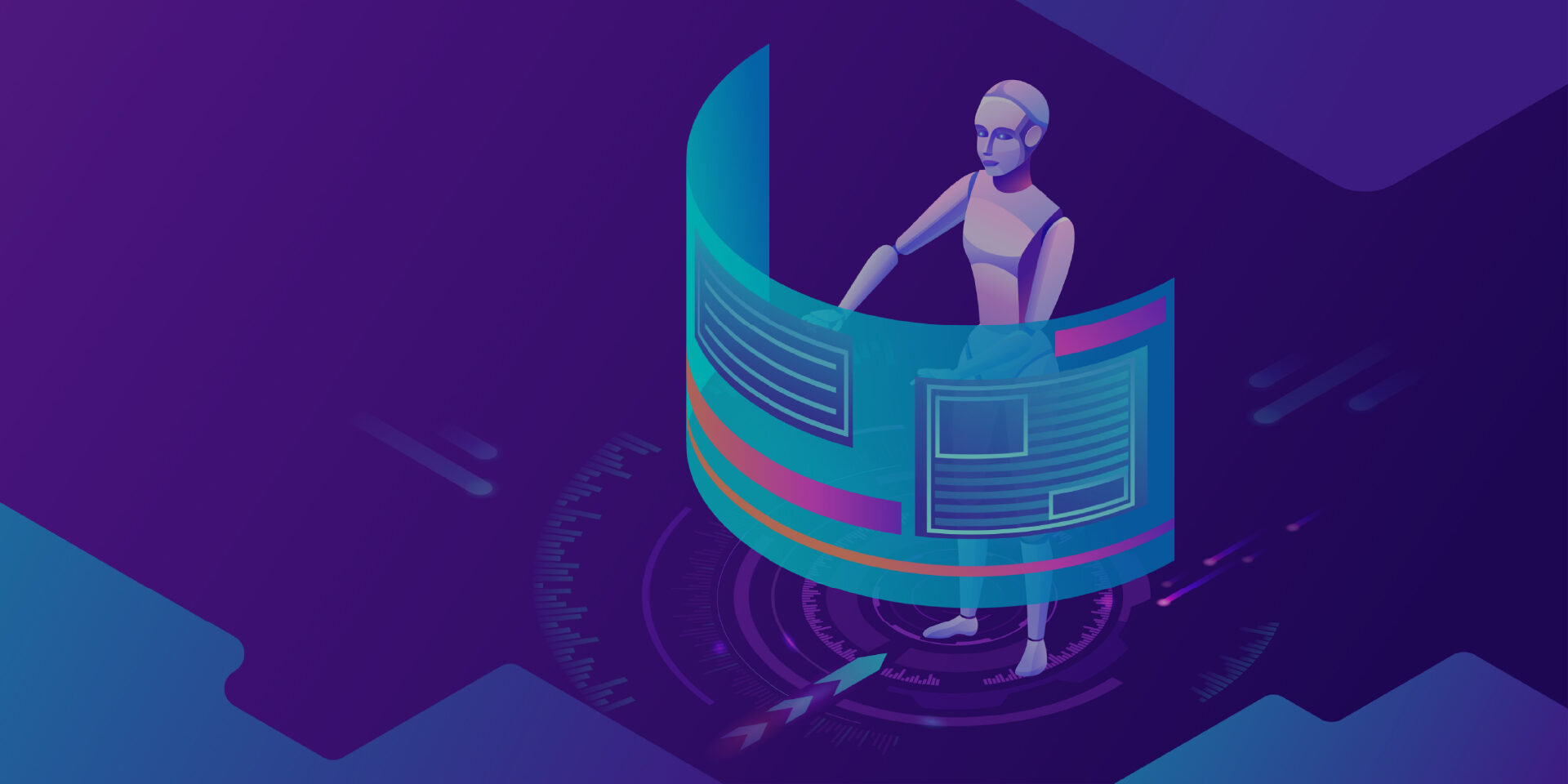Approximately a thousand applications are currently in use in average-sized businesses, and this number is doubled in large enterprises. Inefficiencies in the back office, such as obsolete systems, isolated data sources, and manual and disconnected paper-based procedures, can wreak havoc on productivity and create a negative customer experience.
However, modern businesses are coming to grips with this situation through Robotic Process Automation [RPA] and Artificial Intelligence [AI] to seamlessly automate business operations and IT service desks. CFOs, CXOs, and CIOs have realized the true potential of intelligent automation, which helps in faster turnaround times, increased productivity, and reduced cost.
Here’s how various industries are leveraging RPA and AI in automating their back-office operations.
HR
AI can sift through tons of data and detect situational and behavioral aspects that predict employee behavior, allowing management to respond quickly. The same may be applied for predicting customer behavior to retain loyal customers. This increases visibility, obliterates unexpected departures and eliminates the need for supply and demand personnel sourcing.
You can go a couple of notches further by applying advanced analytics to predict customer and employee attrition and then design bespoke customer and employee experiences based on the enhanced visibility.
When it comes to high volume repetitive work, AI-powered RPA bots can now take care of tedious and monotonous tasks such as form-filling, sending out notifications, and delivering error-free work, allowing HR personnel to focus on other strategic initiatives to improve overall employee experience.
Auditing
Auditing, in general, is a time-consuming task, and structuring and ensuring accuracy is even more challenging. When companies are faced with a large volume of reports and transactions to be audited every day, with strict deadlines and accuracy maintained, AI is the only sensible solution on the horizon.
RPA & AI can be programmed to automatically track business transactions, scan credit card information, and track a business traveler’s costs. The firm’s costs are then audited from the inside out to ensure that they comply with all regulatory rules and norms.
With RPA & AI in the fold, companies can untangle auditing complexities making way for an uncomplicated, equitable, and much more streamlined process.

Patient Scheduling and Claims Management in Healthcare
Patient interaction has comfortably moved into the digital realm. Healthcare companies no longer employ traditional methods to interact with their patients and allocate resources. And patients are truly embracing this digital trend.
By leveraging the RPA technology, healthcare companies can let their patients schedule their appointments without any intervention from hospital employees. By eliminating the need for resource allocation and patients arranging appointments faster, healthcare companies can foster better customer relations and reduce costs.
After healthcare is provided, the billing consumes a significant amount of time and human intervention – not to mention the manual and repetitive processes involved. RPA can fast-track the entire claims management operation by rapidly (and flawlessly) automating crucial tasks, including inputting, processing, and evaluating documents.
Finance & Accounting
Since most parts of finance and accounting involve heavy documentation (both paperwork and electronic), it has become an ideal candidate for automation. RPA and AI are widely used in several streams of finance and accounting, such as account payable, account receivable, and account reconciliation.
Account payables constitute repetitive tasks such as invoice validation, data extraction, and payment processing. RPA and AI facilitate cost reduction, cycle time reduction and help prevent human errors. For example, through AI-automated workflow, one can process over 22,500 invoices per year. In contrast, the manual process allows just 1/10th of the output.
When it comes to accounts receivable, intelligent automation can effortlessly automate the entire spectrum, starting from order processing, order fulfillment, invoicing, to cash allocation. By automating these areas, finance companies can significantly reduce payment duration, increase their collections process and improve overall revenue flow.
Supply Chain
The supply chain industry is a complex chain of operations ranging from dock receipts, delivery orders, bill of lading (B/L), and many other document processing. It is imperative for companies to maintain a high level of efficiency and compliance in their back-office activities that produce and maintain these documents.
RPA and other intelligent automation systems are increasingly being deployed within supply chain operations across the globe. RPA is used in image recognition, clustering information, automating OCR, and assisting in data capturing. Analytics can be used in employee and inventory management. Robotic Process Automation along with Augmented Reality [AR] can be used for warehouse planning, inventory management, and transportation optimizations.
Endnote
Industries have realized the fact that there are no downsides to RPA and AI automation. An increasing number of companies, spanning across major industries, have entered the bandwagon of intelligent automation. Although the prospect of implementing RPA and AI is a big radical restructuring process, the cost-saving, achieving operational competence, and a good ROI that RPA and AI can bring to the table is worth the effort.
Netlabs Global is a leader in providing Robotics Process Automation, Artificial Intelligence, and Machine Learning solutions to help organizations successfully and effortlessly implement intelligent automation to their business processes. Talk to us today to learn more about how our solutions and services can help transform your business.





